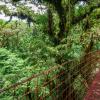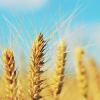
On 26 and 27 August, IIASA hosted a workshop of the Horizon EU project ‘RAINFOREST’ aimed at co-produced transformative knowledge to accelerate change for biodiversity.
The RAINFOREST project is tasked with developing ‘just and viable transformative change pathways’ for reversing biodiversity loss, which reflect a multiplicity of ways in which nature is valued. These pathways are then evaluated through the use of integrated assessment, input output, and life cycle assessment modelling.
This meeting brought together representatives from the 11 partners from 8 countries which participate in the RAINFOREST project, to discuss the results of their case studies and how they illustrate policies and/or values which might be compatible with each of the three draft pathways. Additionally, productive discussions were had over how to best incorporate the policies analyzed into the models. Case studies included: the effects of tourist dietary choices on sustainability of Cyprus, The Republic of Ireland’s peatland management efforts, telecoupling of biodiversity governance between the EU and Brazil, and sustainable fishmeal production in Brazil.
Each day ended with a lively plenary between the participants on how the pathways should be downscaled and adapted in light of the new insights from the case studies. The meeting concluded with an update on the next steps, and a report on the progress of deliverables and in-progress papers. Asides from work, participants found time each afternoon too cool off with a well-deserved ice-cream break!
Co-produced transformative knowledge to accelerate change for biodiversity (RAINFOREST)
The objective of RAINFOREST is to contribute to enabling, upscaling and accelerating transformative change in Europe towards reducing biodiversity impacts of major food and biomass value chains by closing knowledge gaps, demonstrating the effective co-generation and use of knowledge in stakeholder processes to formulate transformative policy options and related innovative governance arrangements.
Work Package 4, led by EQU’s Thomas Schinko and Christopher Wong, is to identify and address the governance challenges, barriers and opportunities for enacting innovative, just and transitional policies on the part of the EU, national and sub-national governments, businesses and international organizations that enable implementation of the transformative pathways identified in WP1.
The RAINFOREST project has received funding from the European Union's Horizon Europe Framework Programme for Research and Innovation (2021-2027) under grant agreement No. 101081744.
News

12 February 2025
The WorldCereal Reference Data Massive Open Online Course (MOOC) is available now!

06 February 2025
Rethinking energy demand can foster sustainable development and reduce emissions from buildings and transport

14 January 2025


